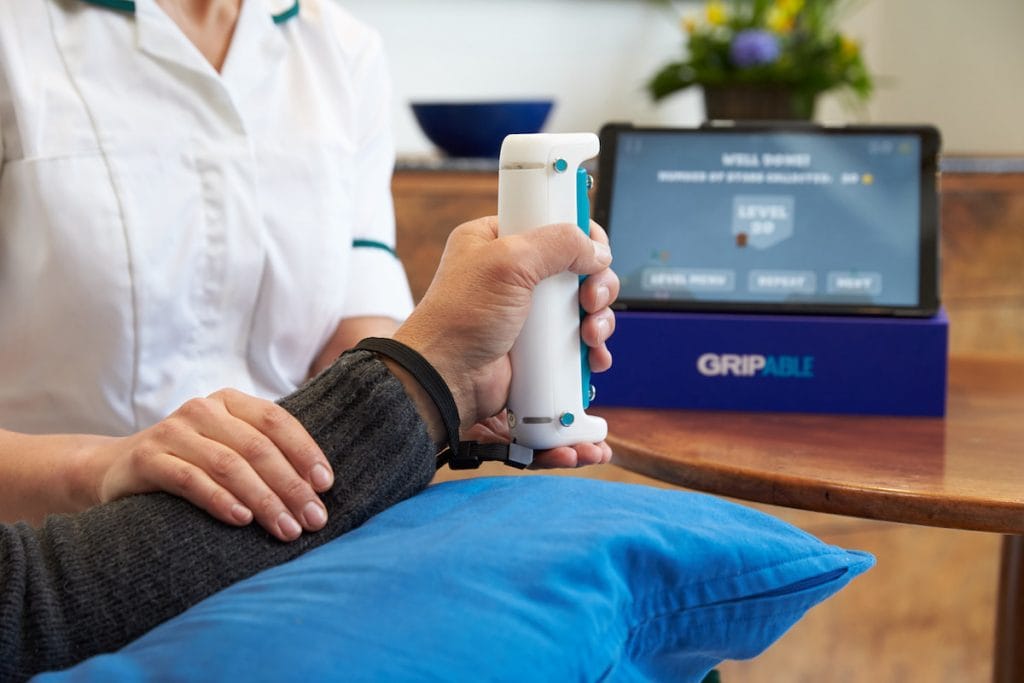
No, I don’t necessarily mean how intelligent are they – nor even if they have so-called SMART goals (Specific Measurable Agreed Realistic Timebound goals). But those are valid questions. If we talk about health outcomes and healthcare in 2021, these are relevant questions. We talk about empowered patients, although some prefer to talk about activated or autonomous patients – does this depend on how smart they are?
Smart can be defined as “in a clever and effective way” (Cambridge), but it can also mean automated and operating as if by human intelligence (Collins) and smart is often interpreted as “automated”. Indeed, this is likely to be a trend but is not to happen widely in 2021 as healthcare is famously cautious in adopting big changes. We will have apps and devices that tell us we are becoming ill before we notice anything different, but that is easier said than done reliably at scale and pace.
Maybe in Spring 2021 I should ask if they are proactive, reactive or inactive in managing their health status and outcomes. Do they take steps to maintain the best possible health without being told what to do – or do they only do the right thing when left with little choice – or do they actually do nothing and just let things take their course? To some extent this depends on health, personal priorities and motivation. Do they reflect on their changing health and habits, do they take notice or be curious and keep learning, are they connected to others who care about them?
Another way of looking at this is to ask the question and focus on the role of money rather than suggest education and health literacy are the most important. For those who have money, maybe a smart patient is one who enjoys having wearable health technology or who has the right health insurance – a connected digital patient who allows technology to record data and analyse or share it.
Yet even those without a lot of money or access to wearable health technology can still be smart enough to listen to good advice, to be vigilant for changes in their mind and body and take action or seek professional advice. By learning to understand their body, they will be able to explain these observations clearly enough to healthcare professionals in a way that enables timely and proportionate interventions thereby preventing the worst outcomes. People don’t have to own technology to be smart, but it can help and is not always prohibitively expensive.
Making smart choices
If we consider the question in terms of making a “smart move”, then we must recognise that we usually apply this term after we know the outcome and if the decision was a wise one when we see how things turned out. Smart patients make smart decisions and wise choices. The wise choices may have been encouraged by public health campaigns, by example from others in their circle of interest or as a consequence of observations, hopes or fears. The important thing is to make such smart decisions at the right time, maybe based on limited information about their specific risks, but decisions they will not regret and were glad they were made.
Smart decisions are often based on instincts and intuition rather than definitive data; what makes them smart is that the outcome is better than it could or would have been. That is a pretty good fit for many health self-management decisions as the consequences of waiting for certainty are often regrettable. For example, a person who recognises they and their family are overweight may reflect the significance of this when chronic disease strikes. They may thus commit to a weight reduction programme. Similarly, if someone is very observant they may notice earlier stages of deterioration in memory and might go to a memory clinic early enough to get the right advice to delay more serious problems later. Do they keep a diary or record their observations?
Smart patients feel more in control, they feel empowered and autonomous and are less likely to allow risk factors to dominate their thinking. They understand what they can exert influence over and what they must accept; they distinguish between cause and effect and can see the sequence of events. People often try to act pre-emptively before an episodic illness crash or flare-up and plan mitigation measures. They recognise the importance of time and timing, managing their choices and behaviours in a time-sensitive way. Smart patients take medications and do exercises as advised, making the best choices available to them and plan their activities accordingly.
One day, artificial intelligence will enable more people to make such smart choices – everyone will be able to learn from others around the world, without ever having to meet them or even know whose data has contributed to the knowledge base. Right now, our challenge is to build this knowledge base in a digital form that can be analysed by machine learning. We have to learn from many people’s smart everyday choices, not just the peer-reviewed literature.
Sometimes the smart patients are the ones who monitor their health in more detail than others; maybe having a greater awareness of early signs of change – when there is “externally” no visible sign of anything being wrong. They know their “normal for me” baseline and spot any departure from this – possibly being labelled as “worried well” and fear being considered as wasting the doctor’s time; but they also do not want to regret not saying something early enough to have more choices . They collect their own data and present charts and diaries but if the busy doctor was not trained to interpret such individualised data, especially from non-medical devices – perhaps they’ll disregard such data. Could this be a missed opportunity for timely interventions?
Using a smart diary
Smart decisions are probably the opposite to taking a head in the sand approach, denying what is happening and ignoring the obvious signs and hoping their worst fears will not come true. Smart patients are observant and aware of changes in themselves – they see patterns, they don’t panic or hide but check to see if the patterns are really there and if there is a trend. Maybe they use a smart diary app (such as from TIYGA™Health) rather than a wearable or to give context to wearable data? They might quietly, or otherwise, make some small changes to their behaviour or keep their own private diary record to see if this is “something that needs attention” or “nothing to worry about”; they take their systematic observations to a professional for advice – and listen and take timely action. Many illnesses don’t usually just appear overnight although viral infections (e.g. covid-19 or long covid) might take people by surprise. Usually the signs are often there for some time in advance – but it is the smart patients who observe those signs and request early investigation. The smart patients give themselves and their healthcare professionals more options to achieving the best outcomes.
In 2021, smart patients accept vaccines as soon as possible and undergo testing if they have been near anyone with covid-19 or have any symptoms that may be indicative they have the disease. They know if they are vulnerable to infection, are extra vigilant where they go and how they protect themselves. They cannot change their medical history, age or ethnicity, but they can, for example, lose weight and eat a healthier diet to protect their immune system.
Being a smart patient does not necessarily mean having a lot of money or a high education but it does require recognising and learning to see patterns early and making timely observations. This allows wise decisions, guided by those who have access to the right knowledge, tools and devices. Time is your greatest asset is true for both patients and healthcare professionals. Timely care is smart care. Let us prioritise smart outcomes for the majority of our population.









